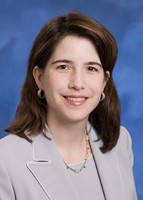
Endocrine News spoke with four of this year’s Early Career Forum speakers to get a sneak peek of their presentations at ENDO 2016 in Boston. In this installment, we talk with Lori Raetzman, PhD, of the University of Illinois at Urbana-Champaign.
Next month at ENDO 2016 in Boston, physicians and researchers just starting out will have the opportunity to gain valuable insight and information from some of the world’s leading endocrinologists in the Early Career Forum. The speakers will be presenting on a number of topics, from tips on getting papers published to developing business acumen.
This prestigious forum for all of the next generation of endocrinologists – graduate students, medical students, post-doc fellows, and clinical fellows – also provides a unique opportunity for basic scientists, clinical investigators, and clinical practitioners to share their ideas and experiences among each other.
But perhaps the most beneficial aspect of the forum is the fact that attendees can look to the forum’s speakers and moderators as experienced mentors, all of whom have tales and tips to share, informed by their own successes and hardships in their respective fields.
Raetzman is an associate professor of molecular and integrative physiology, as well as an associate professor of neuroscience at the University of Illinois at Urbana-Champaign. Her research focuses development and diseases of the pituitary gland. She received the James E. Heath Award for Excellence in Teaching Physiology in 2010.
Why is it important for your Transitioning from PhD to Post Doc lecture to be at the ENDO Early Careers Forum?
A postdoc is probably the most frequent job placement after a PhD in biomedical sciences. It is important to know what to look for in a postdoc and how to use the time during the postdoc to position yourself for your next career move. Additionally, the transition from the camaraderie of a graduate school cohort to the relative isolation of a postdoc can sometimes be challenging.
What can attendees expect to learn from your lecture?
I plan to cover what you should expect to get out of a postdoc and what your mentor will expect of you. Tips about transitioning to a different mode of time management will be discussed. Also, “extracurricular” activities like finding time for career exploration will be covered. Finally, the idea of building mentoring networks will be touched on.
How can attending your lecture help further the career of an endocrinologist just starting his or her career?
By attending this lecture, the hope is that the postdoc process will be demystified and the young endocrinologist will learn skills to cope as well as thrive in the postdoc.

